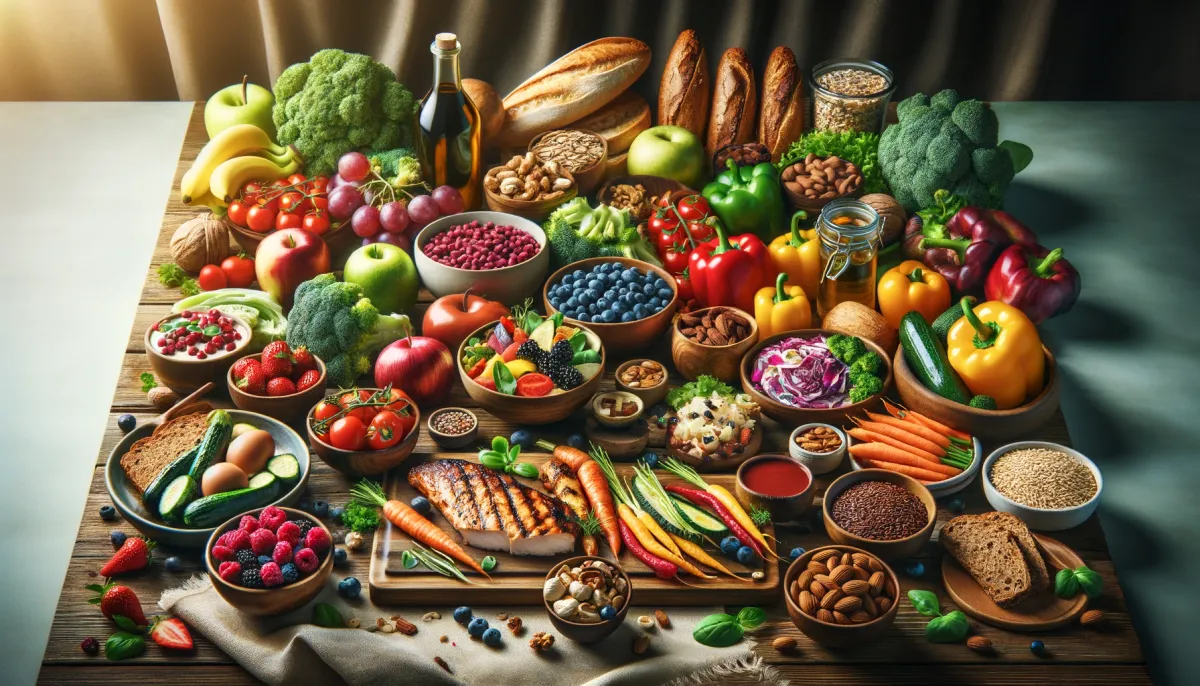An NFL Quarterback's Diet for Peak Performance

In professional sports, your body is your job, and honing it to its peak is just another edge you can create over your competition. Optimizing your body requires a meticulous focus on your health, with nutrition playing a pivotal role. While this isn't medical advice, I've dedicated considerable time to understanding what optimizes my nutritional plan, grounding my regimen in reputable science. In this blog, I'm going to share the core elements of my diet, the scientific backing that sold me on these methods, and how they've transformed my performance and recovery. It will cover four main elements which include fasting, limiting of processed foods and sugars, protein intake and fiber intake.
If you're interested in QB specific throwing, lifting and sprint training, customized to you, with the same systems used to train NFL Quarterbacks, take the assessment and get the app at kinetex.co. If you're interested in reading about all things quarterbacking and throwing biomechanics, subscribe to the blog.
Fasting
I practice intermittent fasting, trying to eat all of my food in an eight hour window. I try to maintain the same window everyday which runs from 9 am to 5 pm during the season and is pushed later in the offseason. This is difficult given the amount of calories I burn, so I am cramming a lot of food into this window. Andrew Huberman, a neuroscientist at Stanford, presents a podcast on the benefits of fasting and the scientific studies showing their benefits, which include better muscle recovery, improved metabolic health, increased brain function, and a healthier gut microbiome. (Podcast link in notes).
Limit Processed Foods and Sugar
I personally aim to limit all processed foods from my diet but give myself the freedom to enjoy life and splurge from time to time. I also aim to limit sugar intake, but fruits high in fiber are still good, e.g. blueberries, blackberries, raspberries. The scientific source of my disdain for processed food and sugar occurred after listening to a Huberman lab podcast with Dr. Robert Lustig, a pediatric endocrinologist who is well known for his research on the dangers of sugar and processed food. After listening, I follow two main rules:
- Did it come from the Earth or directly from an animal? If yes, then I will eat it.
- Check the label for any food that has added sugar, which immediately makes it processed.
This changed my life. Less inflammation, better mood, higher energy. I think people will look back on added sugars and processed food in the same way that we currently look at smoking cigarettes. (Podcast link in notes).
Protein Intake
Given the amount of muscle breakdown that occurs from lifting, practice, and games, protein intake needs to be high for athletes. Layne Norton, a Ph.D. in nutritional sciences, recommends 1.6 to 2.4 grams per kilogram of bodyweight for athletes. That equates to approximately .73 to 1.09 grams per pound. For myself, at 215, I shoot for 200 grams of protein a day and try to source it from high-quality meats and protein shakes with a strong amino acid profile. Benefits of higher protein intake include increased lean muscle mass and more efficient muscle repair from the break down of tissue. (Podcast link in notes).
Fiber Intake
Again citing Dr. Layne Norton, he advocates for 15 grams per 1000 calories. He purports that fiber is vital for supporting a healthy gut microbiome. The gut microbiome plays a crucial role in overall health, metabolism, and in managing body weight and composition. Other benefits of increased fiber intake include improved digestion, enhanced satiety, better blood sugar regulation, and lower inflammation. Since striving for this, I've noticed a positive difference in how I feel, especially in managing glucose spikes. (Podcast link in notes).
Conclusion
Adopting a focused approach to nutrition is essential for maximizing athletic potential. This regimen includes practicing intermittent fasting within a specific daily window, limiting processed foods and sugar for overall health, ensuring high protein intake to support muscle repair, and emphasizing fiber for gut health and metabolism. I advise people to consider implementing some of these but still doing their own research, staying up to date on the latest science and then seeing how your body responds. Lastly, although I do my best to follow these general guidelines, I still let loose and enjoy life. You don't have to be a robot; indulging in peanut butter pie now and then, or having dinner at 8 pm, is not the end of the world. Life is too short.
Final thought: I adopt a non-dogmatic approach to my health, a stance I recommend to others. I simply look for reputable resources, then experiment based on their recommendations to see how my body responds. If new science comes out, then I am always open to amend my health related regimens and I recommend others to do the same.
Notes:
Processed Food and Sugar Podcast Link
Protein Intake and Fiber Intake Podcast Link
If you're interested in QB specific throwing, lifting and sprint training, customized to you, with the same systems used to train NFL Quarterbacks, take the assessment and get the app at kinetex.co. If you're interested in reading about all things quarterbacking and throwing biomechanics, subscribe to the blog.
